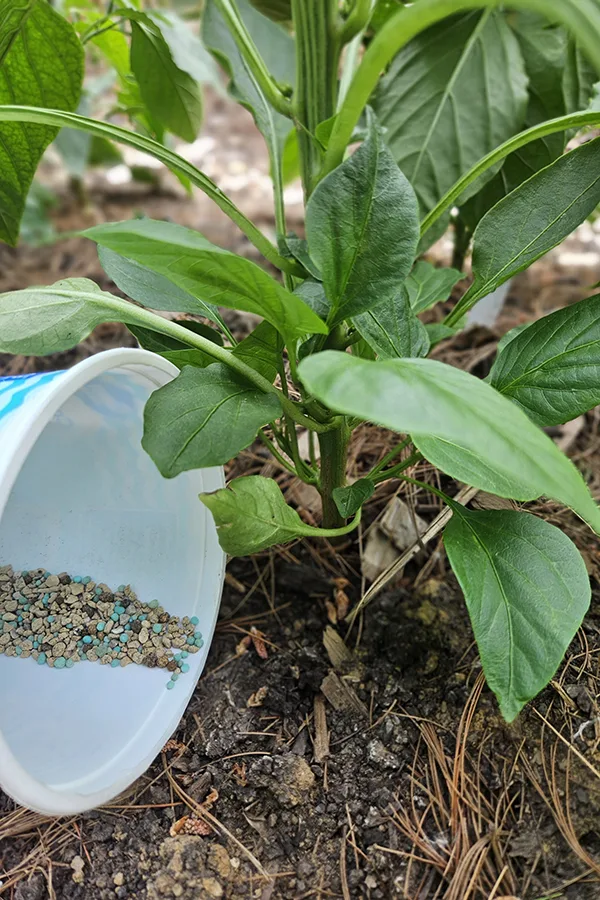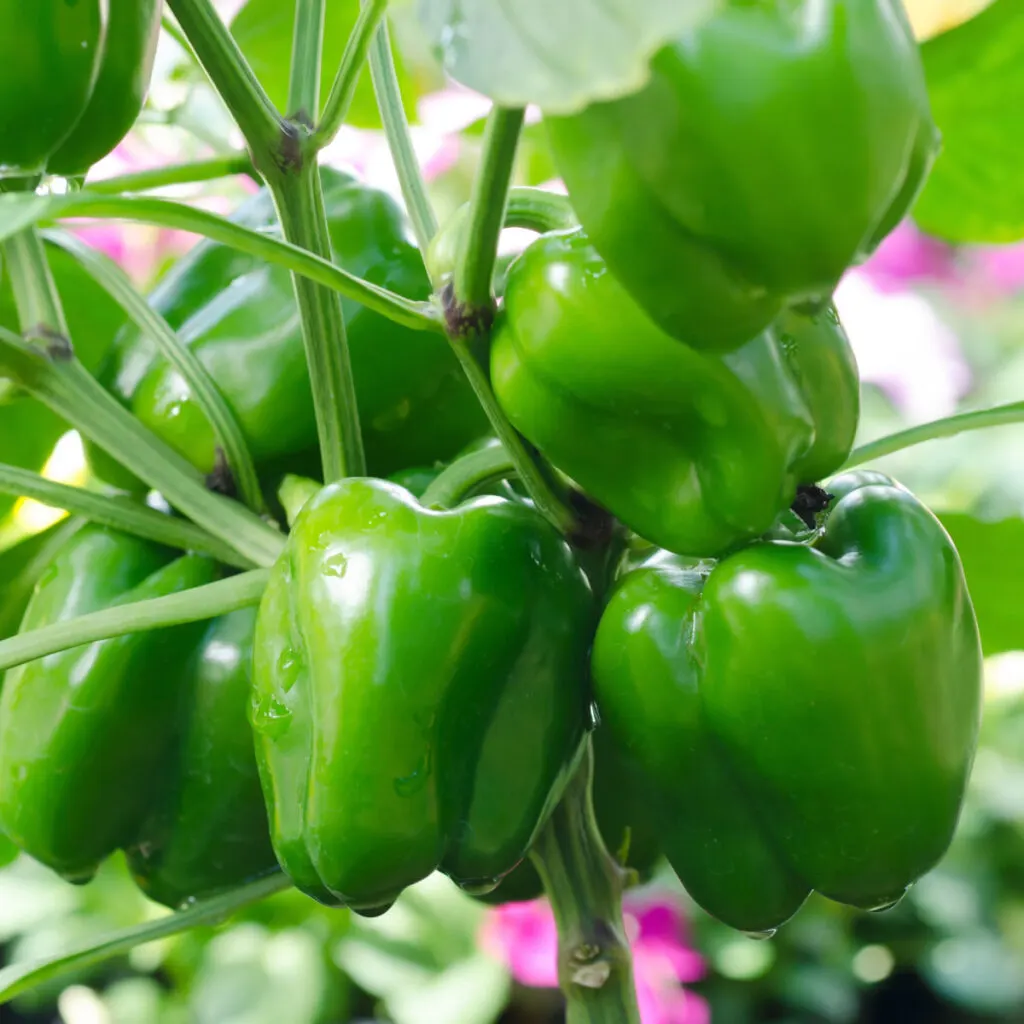Best Fertilizers for Peppers: A Comprehensive Overview to Increase Your Harvest
Best Fertilizers for Peppers: A Comprehensive Overview to Increase Your Harvest
Blog Article
The Ultimate Guide to Feeding Peppers: Enhancing Growth and Flavor Naturally
As pepper enthusiasts seek to cultivate durable plants generating delicious fruits, the function of fertilization ends up being critical in accomplishing these goals. By discovering the benefits of natural fertilizers, opening the secrets behind pepper plant nutrient needs, and delving into the world of organic plant food options, a globe of opportunities arises for enhancing the vigor and flavor account of these beloved plants.
Benefits of All-natural Fertilizers
Natural plant foods provide a variety of benefits that contribute to the total health and wellness and performance of pepper plants. Unlike artificial plant foods, all-natural options supply important nutrients in a form that is easily soaked up by the plants, promoting robust development and development. One of the vital benefits of all-natural plant foods is their capacity to improve soil framework and fertility with time. By enhancing the soil with organic matter, such as compost or manure, natural plant foods enhance its water retention capability and nutrient-holding capacities, creating a much more welcoming environment for pepper plants to grow in.
Moreover, all-natural fertilizers sustain a active and diverse dirt microbiome, cultivating beneficial microbial activity that assists in nutrient recycling and uptake by the plants. This microbial activity can help subdue dangerous virus and conditions, reducing the need for chemical interventions. In addition, all-natural fertilizers advertise lasting dirt health and wellness by preserving a well balanced ecological community underground, which subsequently supports the overall health and wellness and resilience of pepper plants above ground.
Understanding Pepper Plant Nutrient Needs
Having developed the benefits of natural fertilizers in enhancing dirt health and wellness and promoting microbial task, the focus now changes to comprehending the specific nutrient requirements necessary for optimum growth and flavor in pepper plants.

Understanding the specific nutrient demands of pepper plants is crucial for attaining plentiful harvests with excellent taste. By offering the ideal balance of nutrients with organic fertilizers or dirt amendments, farmers can make sure healthy and balanced, strenuous plants that produce savory peppers throughout the expanding period.
Organic Plant Food Options for Peppers
In boosting the growth and flavor of pepper plants, choosing the ideal organic plant foods is a critical consideration. Organic plant foods supply a sustainable and all-natural means to nurture pepper plants without presenting harmful chemicals to the dirt and setting. One prominent option is garden compost, which improves the dirt with crucial nutrients and enhances its framework, promoting healthy origin advancement and overall plant development. In addition, compost helps retain dampness in the dirt, decreasing water stress and anxiety on pepper plants during heat.
One more efficient organic fertilizer for peppers is aged manure. Rich in nitrogen, potassium, and phosphorus, aged manure gives a well balanced nutrient mix that supports vigorous growth and abundant fruit manufacturing (best fertilizers for peppers). It is vital to utilize well-aged manure to stop shedding the plants with excess ammonia
Fish solution is a fast-acting natural plant food that supplies pepper plants with a fast increase of nutrients. Originated from fish waste, this plant food is high in nitrogen, making it especially valuable throughout the early stages of pepper plant growth. Fish emulsion is easy to apply and is easily soaked up by the plants, promoting healthy vegetation and solid root advancement.
When picking a natural fertilizer for peppers, take into consideration the certain nutrient needs of your plants and go with alternatives that align with your horticulture practices and worths.
Ideal Practices for Feeding Pepper Plants
Thinking about the significance of this post choosing suitable natural fertilizers for pepper plants, implementing finest techniques for fertilization is crucial to guarantee ideal development and taste growth. Among the key best practices for fertilizing pepper plants is to perform a soil examination prior to applying any plant foods. This test will help establish the specific nutrient needs of the soil and overview you in selecting the right kind and quantity of plant food. It is likewise vital to fertilize pepper plants at the best time, usually prior to planting and throughout essential growth phases such as flowering and fruit advancement.
An additional essential technique is to avoid over-fertilization, as this can result in vitamins and mineral inequalities, stunted growth, and even plant damage (best fertilizers for peppers). Complying with advised dosage directions and not surpassing them is essential for the total health of the pepper plants. Additionally, integrating raw material right into the dirt via compost or mulching can help enhance dirt framework, water retention, and nutrient schedule, promoting healthier pepper plants with improved flavor profiles. By adhering to these best techniques, you can successfully nurture your pepper plants and attain bountiful harvests with premium preference and top quality.
Troubleshooting Common Fertilizing Issues

pH imbalance is one more problem that can affect nutrient uptake in pepper plants. Developing a normal fertilization routine and adhering to suggested application prices can aid avoid this concern and ensure healthy pepper plants throughout the expanding season.
Conclusion
In conclusion, utilizing natural fertilizers can dramatically boost the growth and taste of pepper plants. By comprehending the nutrient requirements of pepper plants and choosing organic fertilizer options, gardeners can successfully advertise healthy and balanced and strenuous development. Following finest techniques for feeding pepper plants and troubleshooting typical fertilization problems can assist guarantee effective farming of peppers. On the whole, proper fertilization methods are crucial for making the most of the yield and top wikipedia reference quality of pepper crops.
By exploring the advantages of natural plant foods, unlocking the keys behind pepper plant nutrient needs, and diving right into the world of organic plant food choices, a world of possibilities arises for boosting the vigor and taste account of these cherished plants.Fish emulsion is a fast-acting natural fertilizer that supplies pepper plants with a fast increase of nutrients. It is also vital to fertilize pepper plants at the appropriate time, typically before planting and during key development phases such as blooming and fruit development.
By recognizing the nutrient demands of pepper plants and choosing organic fertilizer choices, gardeners can properly advertise healthy and balanced and energetic development. Following ideal methods for feeding pepper plants and fixing typical fertilizing issues can aid make sure successful growing of peppers.
Report this page